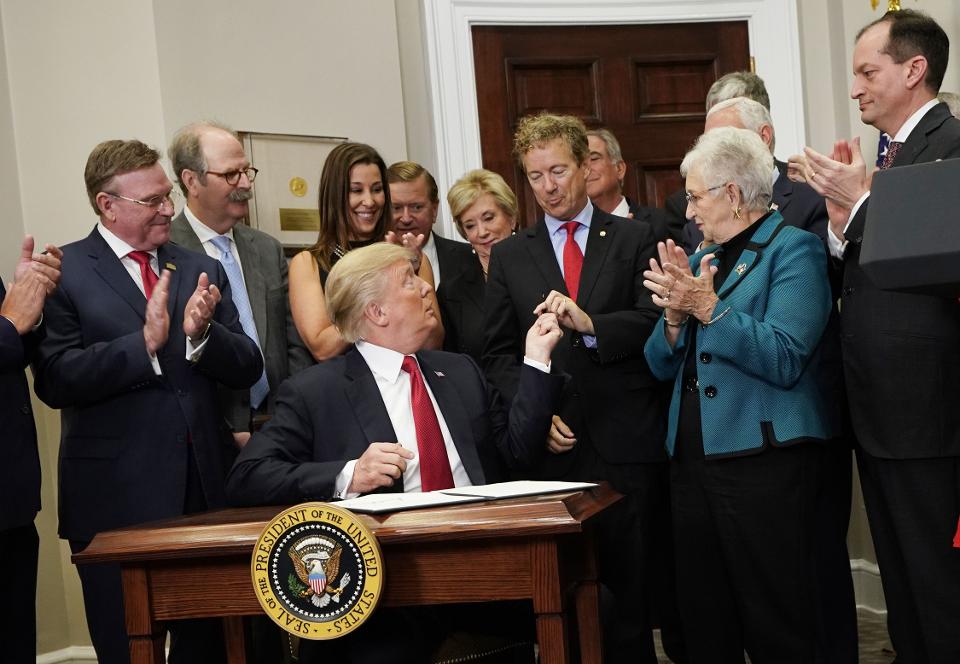Recently, President Donald Trump performed a bit of an end-around on the stifling healthcare bill by signing an executive order aimed specifically at providing small businesses some relief — and more affordable health insurance options.
In a ceremony at the Oval Office, Trump signed an executive order that does a few things to directly impact small businesses. While much of this is still foggy for many of us, here’s what we are hearing out of Washington D.C.
Association Health Plans (AHPs)
The order directs the secretaries of the departments of Health and Human Services, Labor, and the Treasury to review existing guidance on association health plans (AHPs)
The executive order instructs the Secretary of Labor, within 60 days of the date of the order, to consider proposing regulations or revising guidance to expand access to health coverage by allowing more employers to form AHPs by expanding the conditions that satisfy the commonality‑of-interest requirements under current Department of Labor advisory opinions interpreting the definition of an “employer.” The Secretary of Labor should also consider ways to promote AHP formation on the basis of common geography or industry.
A written statement from The White House states: “By potentially making it easier for employers to band together, workers could have access to a broader range of insurance options at lower rates in the large group market. Employers participating in an AHP cannot exclude any employee from joining the plan and cannot develop premiums based on health conditions.”
This part of the executive order is being received well by some business organizations, while many are unsure if this will stick or what this really means for associations.
Health Reimbursement Arrangements (HRAs)
The executive order signed on Oct. 12 also calls for the creation of Health Reimbursement Arrangements. These would allow small business owners to reimburse their employees for their healthcare expenses.
Specifically, these expenses include the co-payments and deductibles that an employee would have to pay out-of-pocket for their healthcare.
Trump says these HRAs would benefit the two-thirds of small business employees who do not receive health insurance coverage through work. Those employees not getting health insurance through work are forced either pay for Obamacare through the exchanges or pay the individual penalty.
Short-term Limited Duration Insurance (STLDI)
Trump’s recent action also called for the creation of short-term limited duration insurance (STLDI) plans.
These plans are suited for people between jobs, who have limited options available through the ongoing Obamacare exchanges or who missed enrollment periods and need a short-term health insurance plan.
STLDI plans are attempting to address the changing look of the American workforce and the needs of entrepreneurs. Many believe that regulatory systems need to allow for how people currently work, and how they will work. As they cycle between full-time jobs and part-time work, more affordable and flexible health coverage is desirable. This could be an option for people in younger companies like startups and self-employed individuals.
We are always keeping a close eye on developments such as these, as we know they will affect the employee benefits landscape.
Learn more about how NARFA programs could be a perfect fit for your business. Custom programs, available to association members only are one of the many reasons year after year businesses in the automotive, roads, fuel, and related industries choose NARFA.
Contact us today to find out about how to join our powerful association.
Recent Posts
The U.S. Department of Labor Announces Proposed Rule To Protect Indoor, Outdoor Workers From Extreme Heat
The U.S. Department of Labor has proposed a new rule aimed at protecting workers from extreme heat hazards. This initiative seeks to safeguard approximately 36 [...]
Supreme Court Overturns Chevron Deference: What It Means for Workplace Safety and Regulation
The landscape of federal regulation is set for a seismic shift following a recent Supreme Court decision. On June 28, in Loper Bright Enterprises, et [...]
Navigating the Compliance Maze: How NARFA Simplifies Employee Benefits for Automotive and Trade Industries
In today's complex regulatory environment, businesses in the automotive, roads, fuel, and related industries face unprecedented challenges in managing employee benefits. Recent studies show that [...]




